In a tribute to Dr. Martin Luther King Jr., a discussion of civil rights in the age of artificial intelligence.
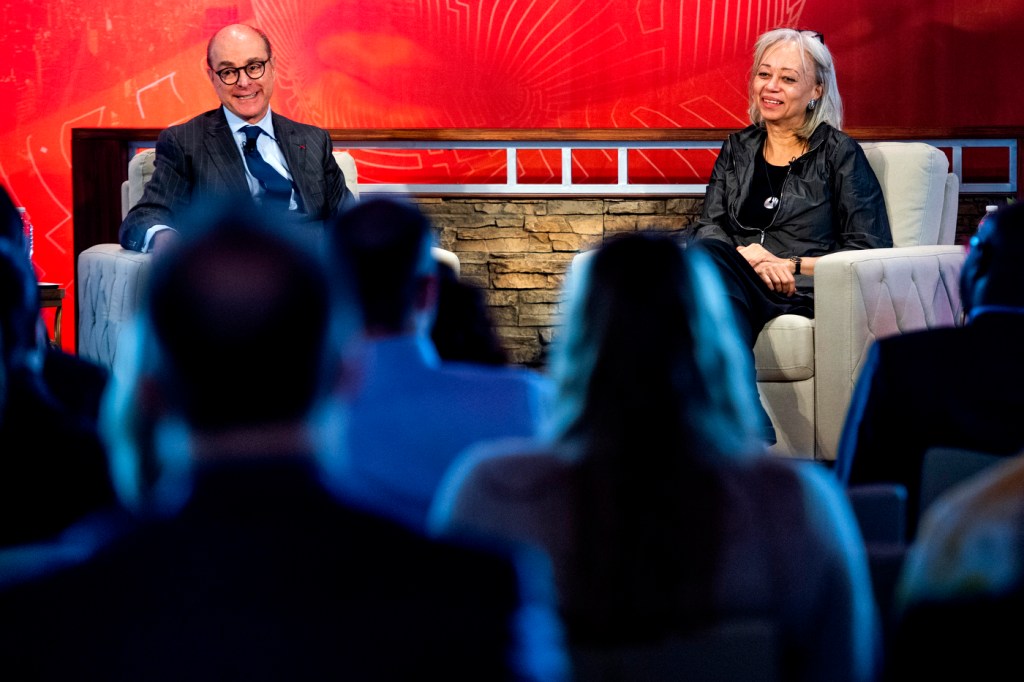
Accountability and responsibility in the digital age were the central themes of a conversation in celebration of the life and legacy of Dr. Martin Luther King Jr. on Thursday at Northeastern.
In the discussion, hosted by Joseph E. Aoun, president of Northeastern, Patricia J. Williams, University Distinguished Professor of law and humanities, said the digital age is reclassifying people as consumers, and creating new social hierarchies that are essentially soulless.
The algorithms that tech companies such as Google and Facebook use to mine information are sources of mystery to the hundreds of millions of users who are exposed and exploited by the invasions of their privacy, said Williams, who has authored several books on critical race theory and gender theory.
“Algorithms leave us in the dark about how we’re being judged or sorted, or for what purposes,” said Williams, who came to Northeastern last fall from Columbia University.
Aoun nodded, and suggested that people can make choices for themselves as they respond to the artificial intelligence revolution.
“AI can be used as a force for good, and it can be a negative,” he said. “Every tool is like that.”
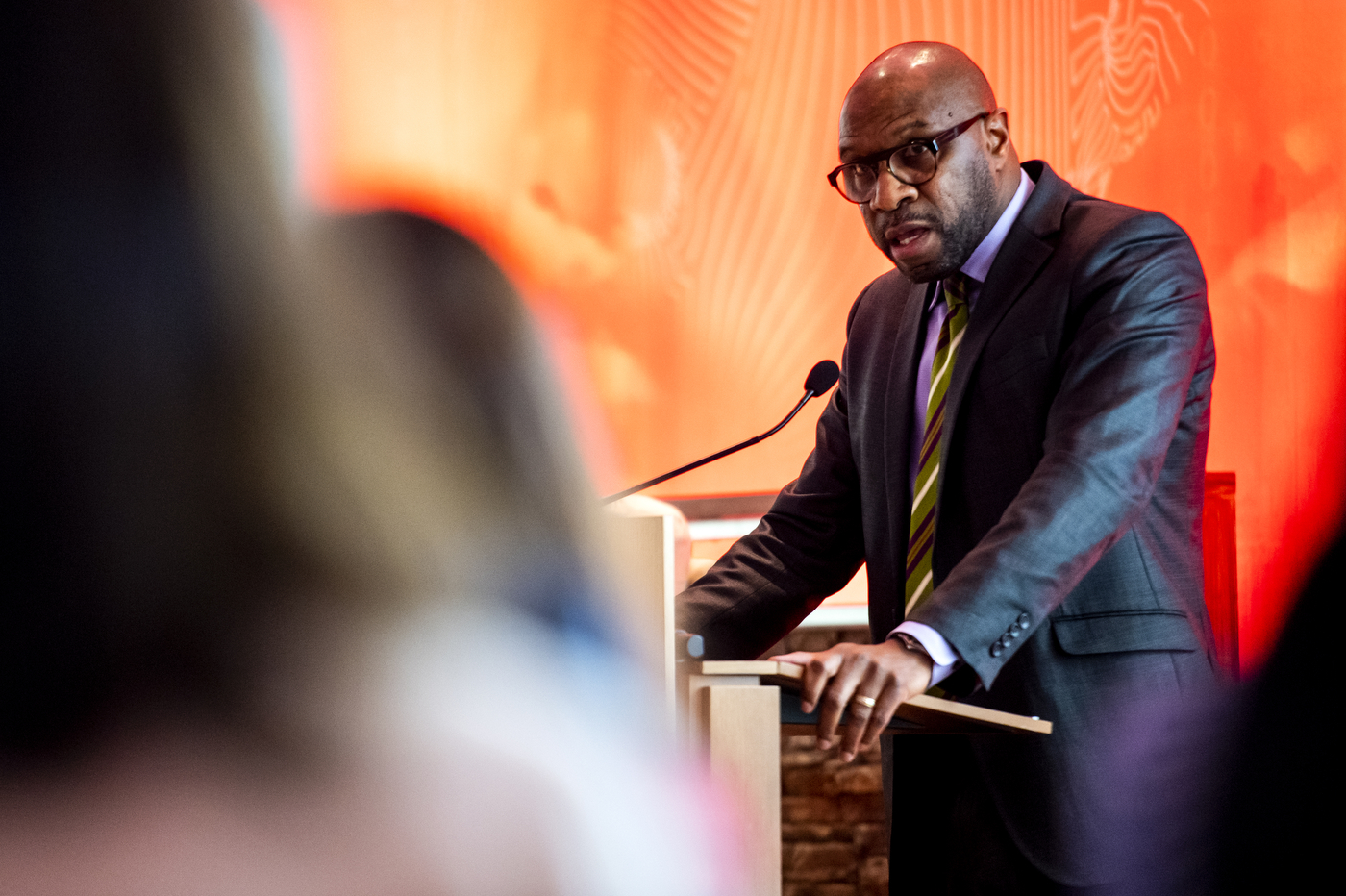
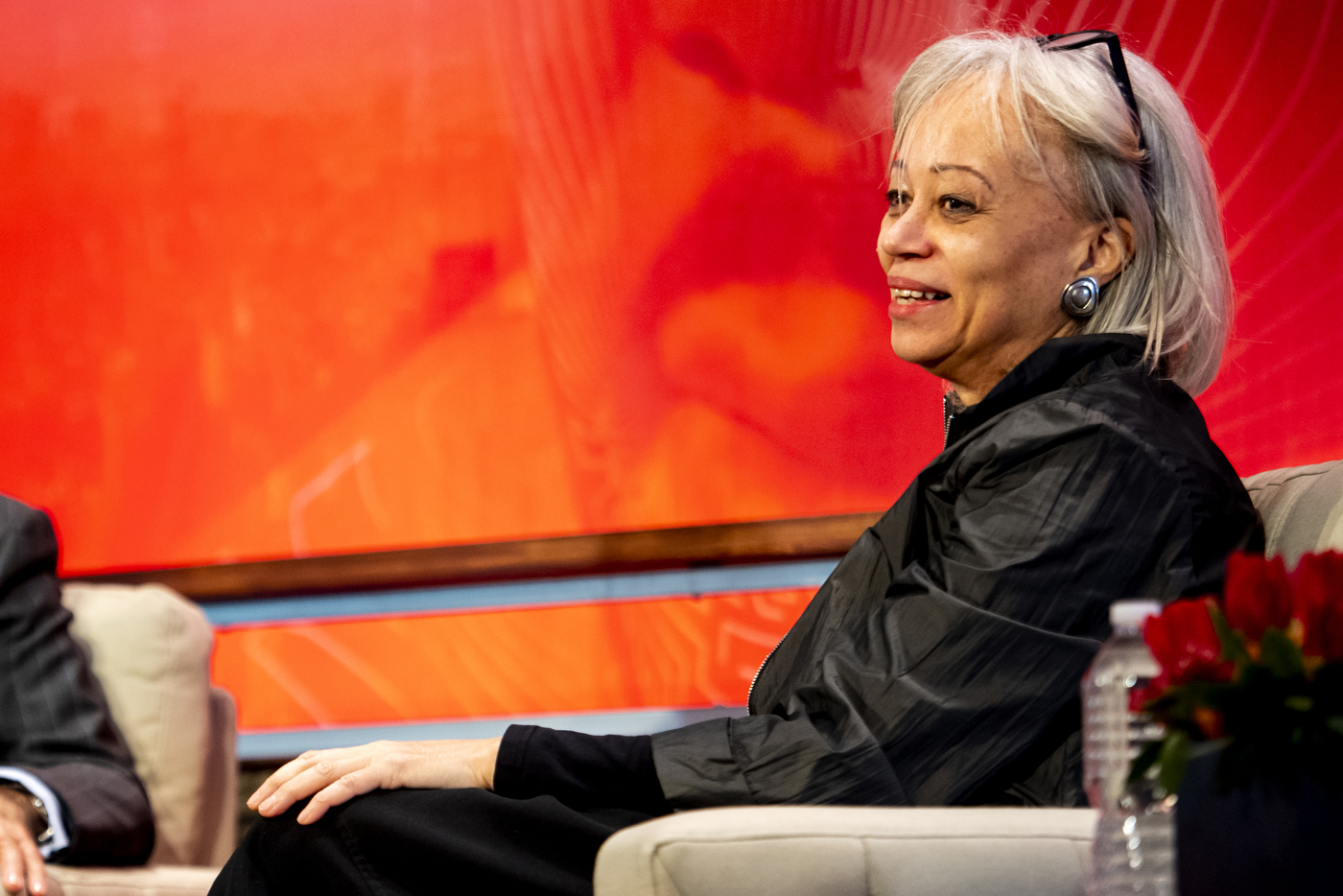
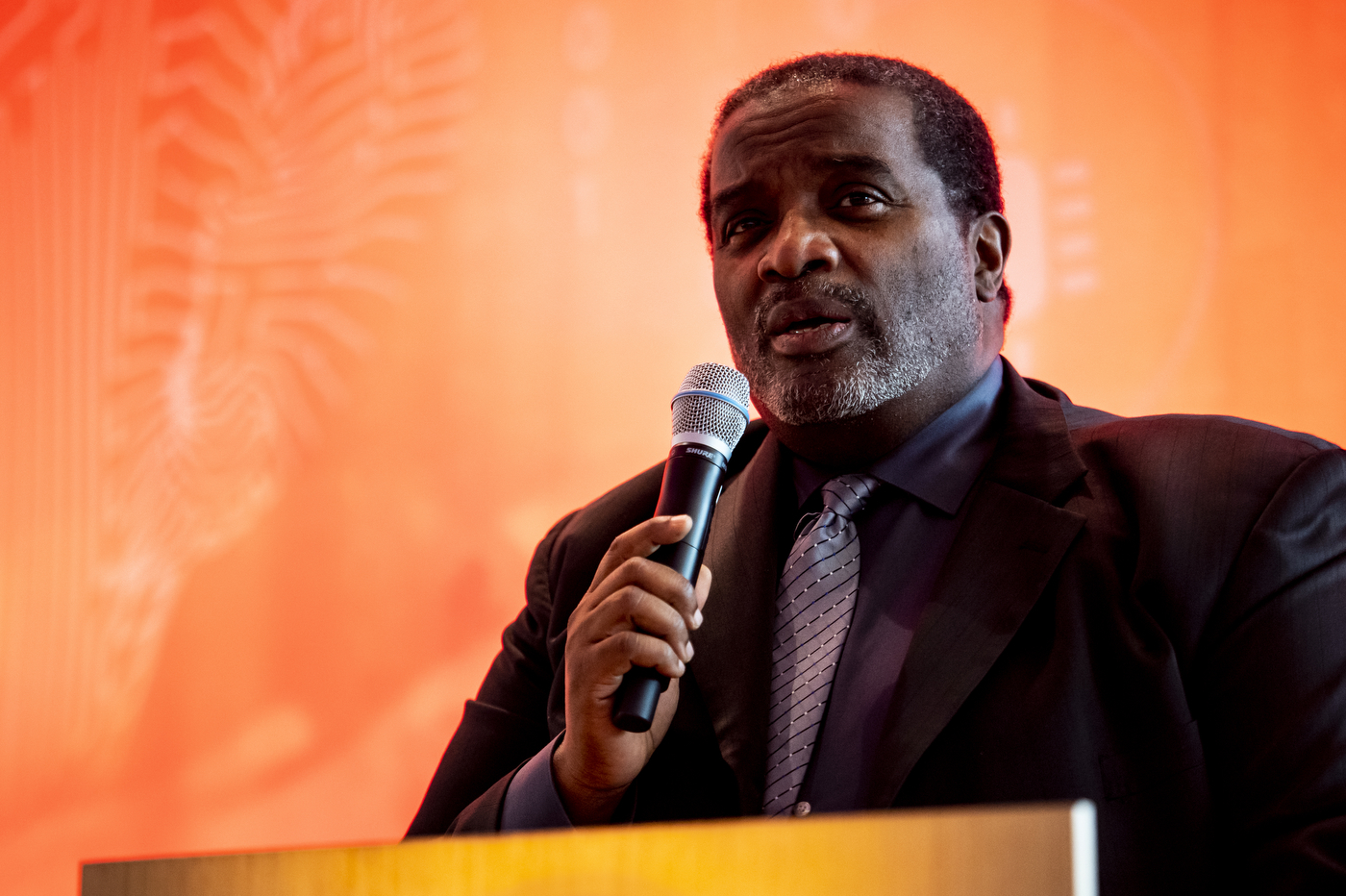
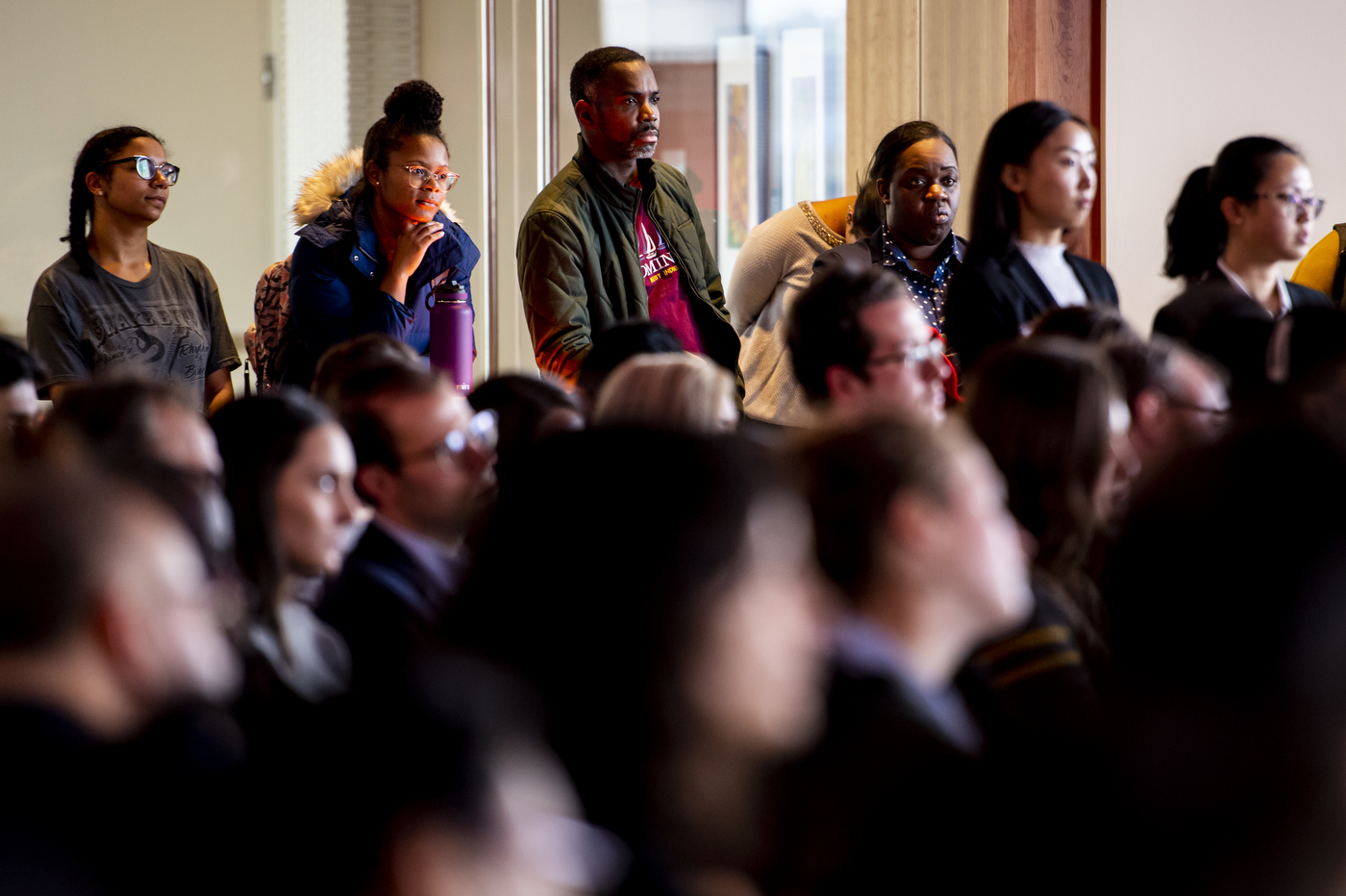
The event, titled “A Tribute to the Dream: A Celebration of the Life and Legacy of Dr. Martin Luther King Jr.”, included musical performances by Northeastern students Felisha Cabral and Tolu Faderin.
Robert Jose, Northeastern’s associate dean for cultural, residential, and spiritual life, spoke of the spirit of King, who framed the tragic journey and ceaseless dreams of African Americans within a universal context of human rights for people of all races, classes, genders, religions, and cultures.
“He understood that justice existed for one thing and one thing only, and that was to promote freedom,” Jose said. “He understood that justice promoted freedom by emphasizing equality, impartiality, accountability, and responsibility. He knew that if society was going to be free, then it had to be just.”
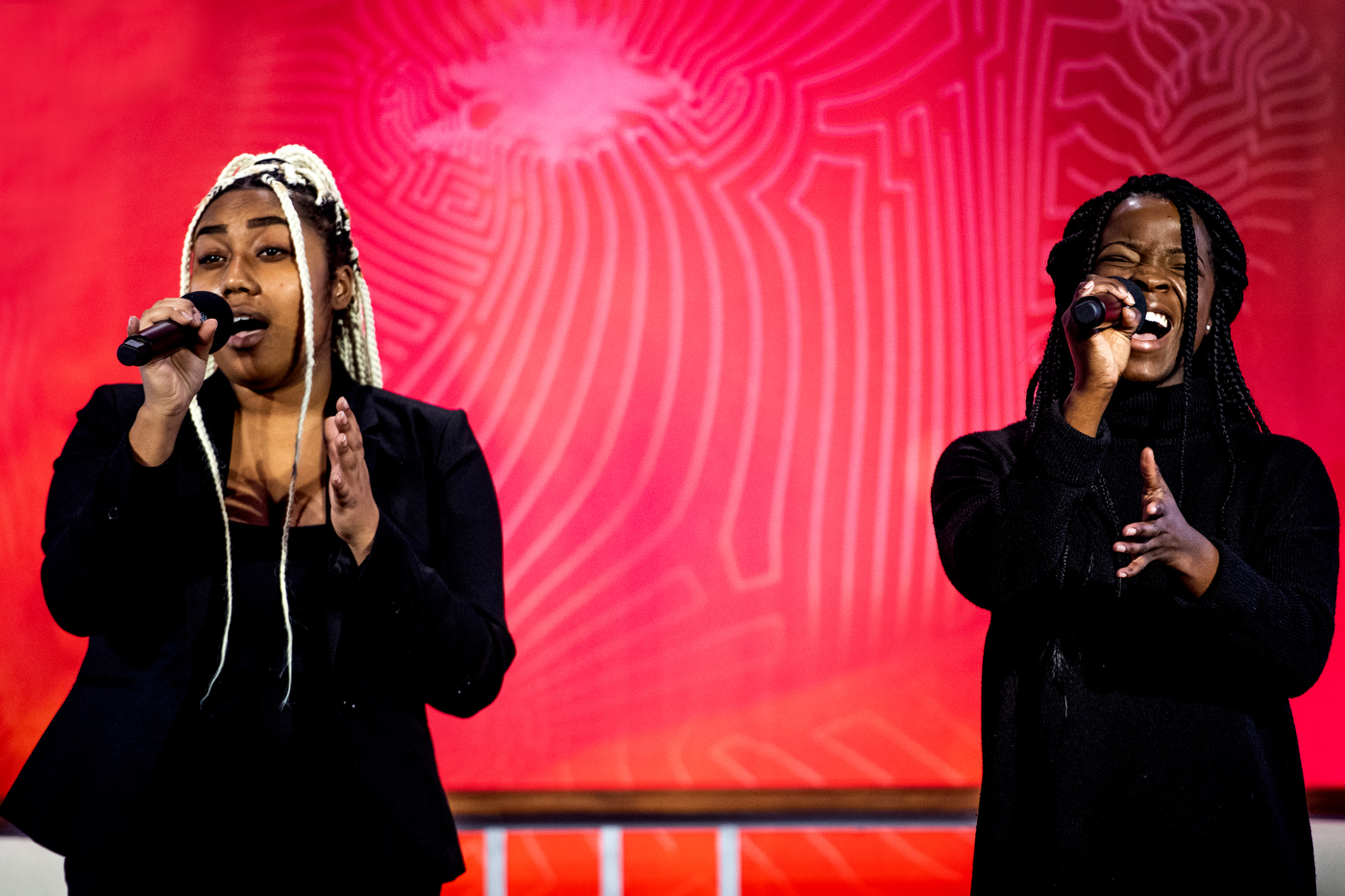
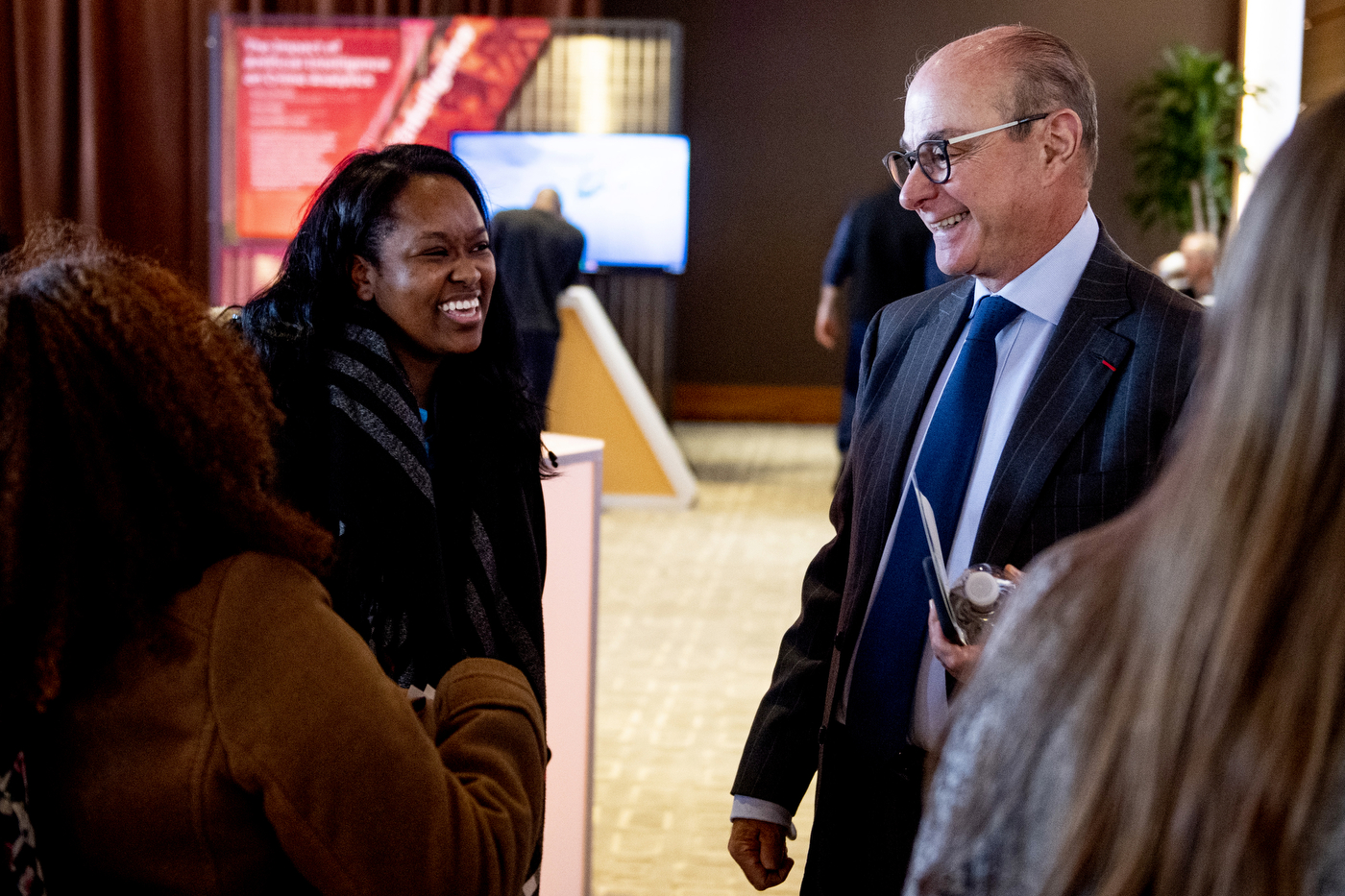
But the forces that King fought have resurfaced in algorithm-driven technologies that are known to be creating unconscious biases across a variety of platforms, according to research published last year by Venkat Kuppuswamy, a Northeastern assistant professor of entrepreneurship and innovation.
Kuppuswamy showed that customers are less willing to pay top dollar for a product made by a black entrepreneur than they are for the same product made by a white entrepreneur, because customers assume that black entrepreneurs will use lower-quality materials and invest less time. Kuppuswamy found bias built into platforms such as Kickstarter, Indiegogo, or GoFundMe, where people can make a public pitch for funding causes or products.
In another study, Kuppuswamy and his collaborator, Peter Younkin of the University of Oregon, found “that African American men are significantly less likely than similar white founders to reach their fundraising goals and that prospective supporters rate identical projects as lower in quality when they see the founder is an African American male.”
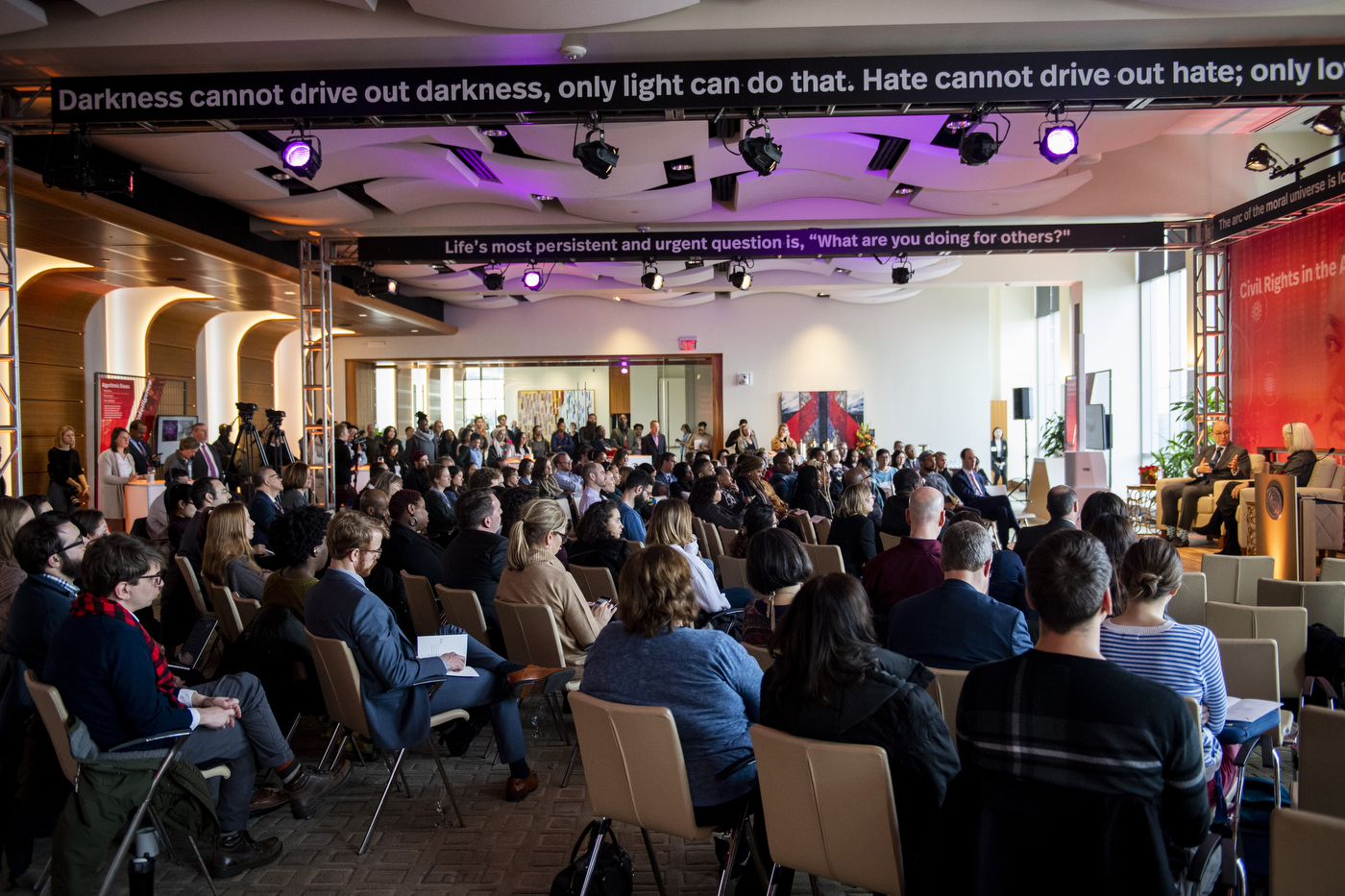
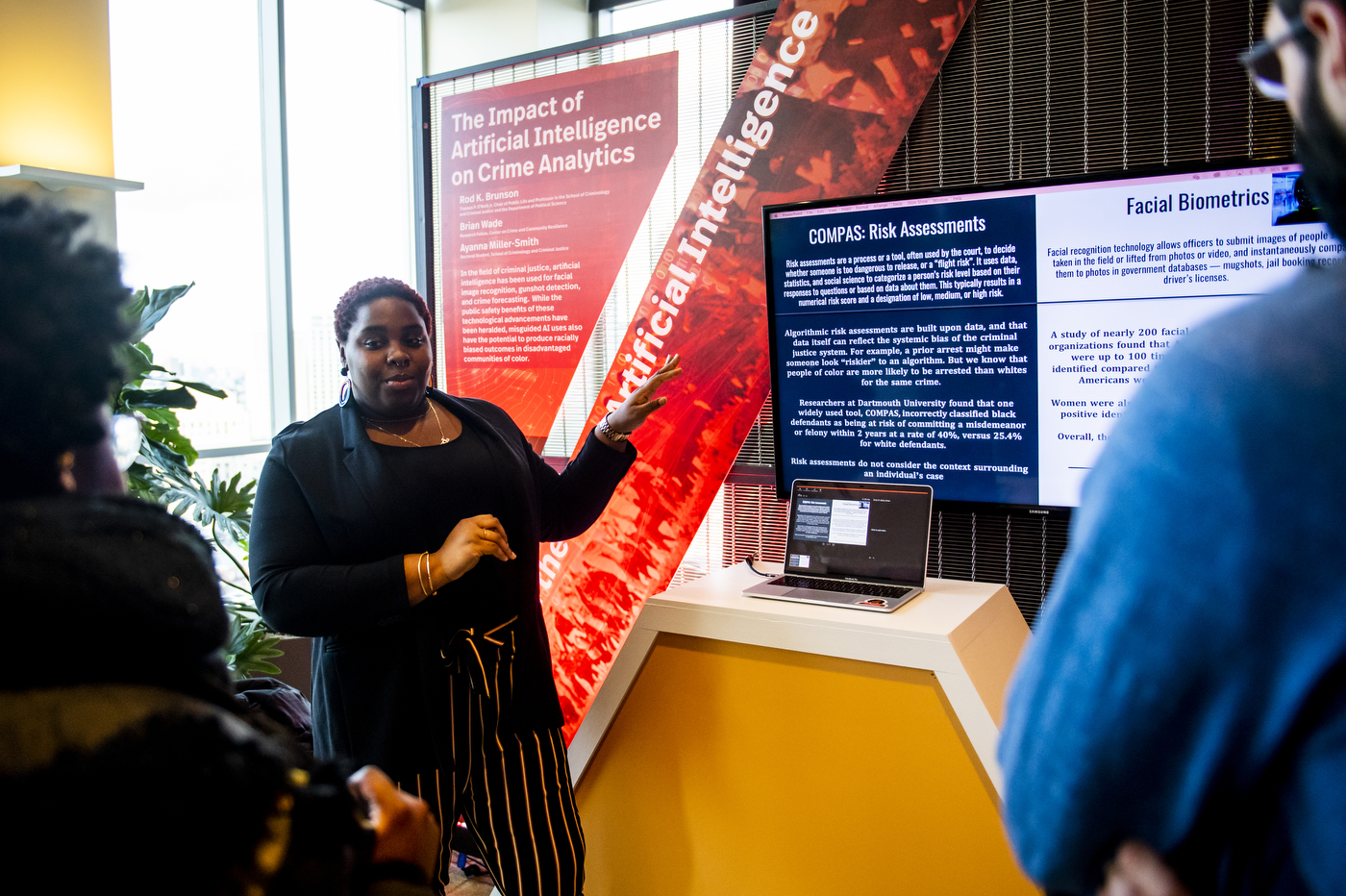
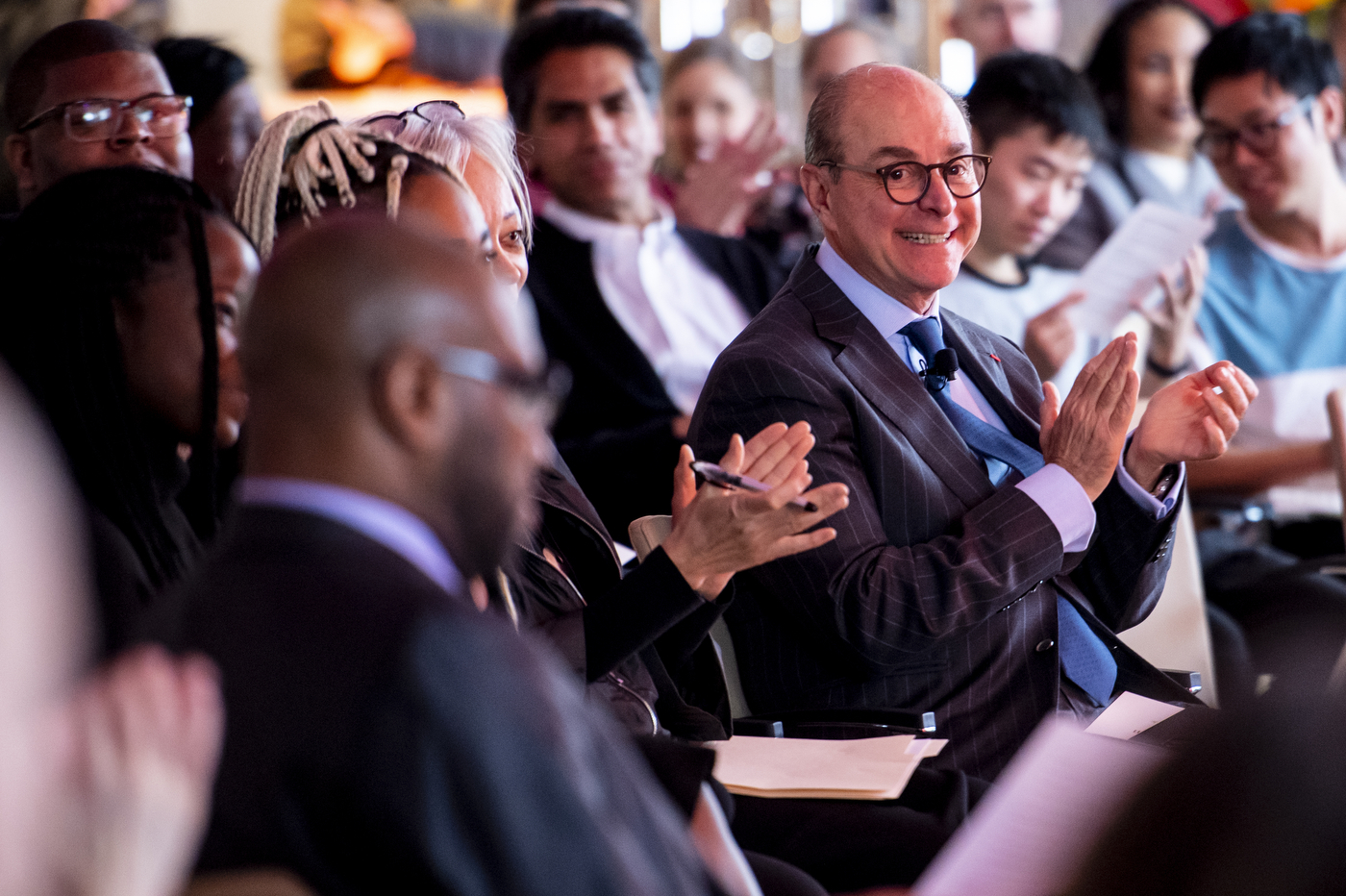
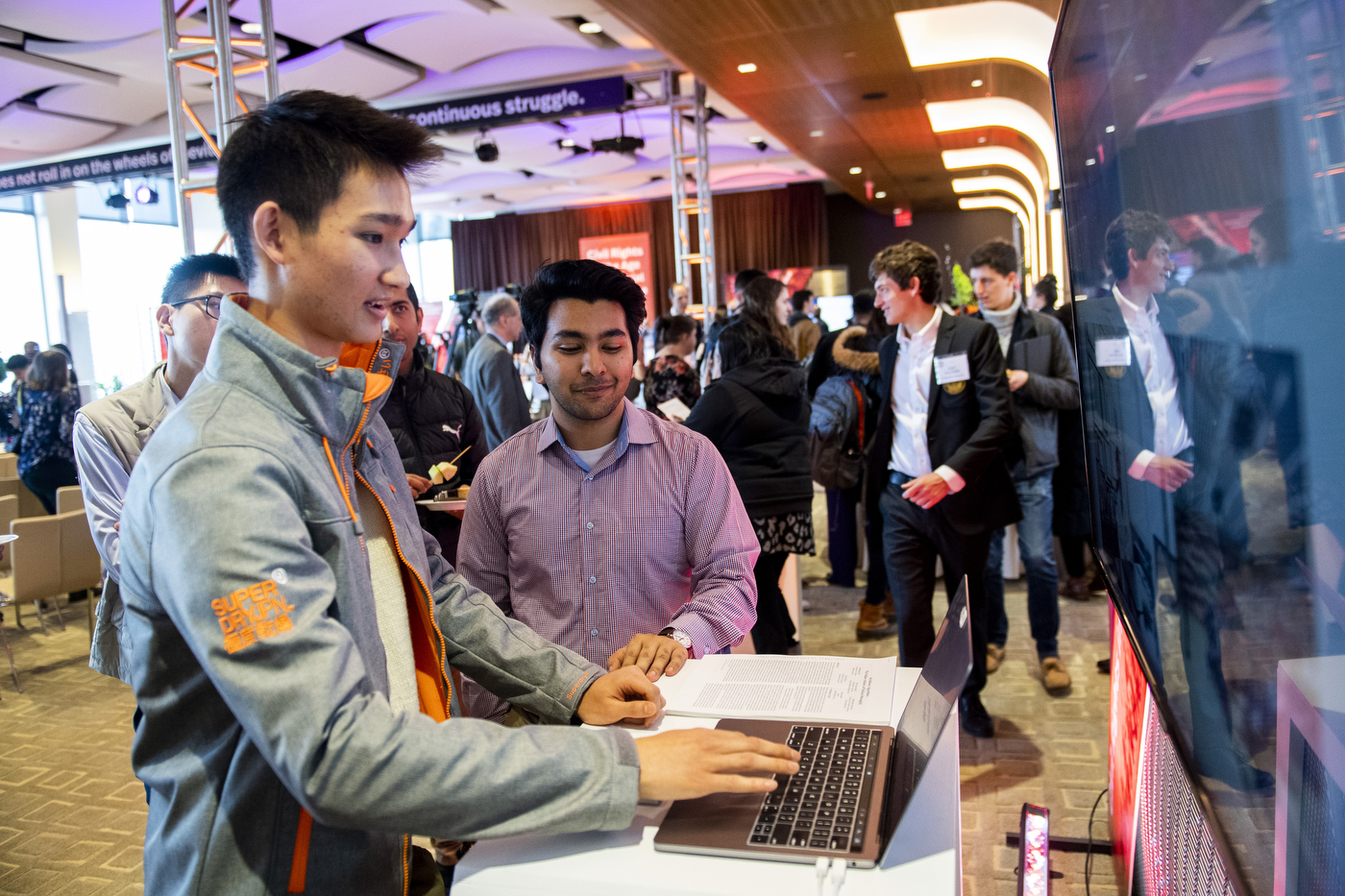
Williams cited the issue of Democratic presidential candidate Elizabeth Warren’s ancestry as another sign of how the data culture is changing society. By submitting to a DNA test in 2018, Warren was hoping to prove her Native American heritage. She made a mistake by changing the terms of her identity, Williams said.
“She never said, ‘I am Native American,’” Williams said. “What she said was that she had Native American ancestry. So it was clearly a social reference about her sense of identity.”
Williams expressed support for Northeastern’s interdisciplinary collaborations to help resolve the fundamental issues of privacy and accountability in the digital age.
The university’s strategic plan, Northeastern 2025, prepares students to thrive in the age of artificial intelligence by emphasizing human skills in the form of a curriculum called humanics, which purposefully integrates three literacies—understanding technology, understanding data, and understanding what it means to be human.
And what it means to be human at a time when digital forces intrude, seemingly, upon every moment.
A lush forest in the greenest heart of Washington state used to be a refuge for Williams. It was her get-away from the 24/7 pressures, a place to renew the frazzled nerve-endings of her humanity.
Until a surveillance camera was installed.
“The camera changed my relationship with that place,” said Williams.
Ultimately, Williams and Aoun were discussing new definitions of the same dynamics that defined King’s struggle. What does it mean to be human? Who are we, and where are we going?
“Dr. King’s message is universal,” Aoun said.
And timeless.
Molly Callahan contributed to this report. For media inquiries, please contact media@northeastern.edu.






